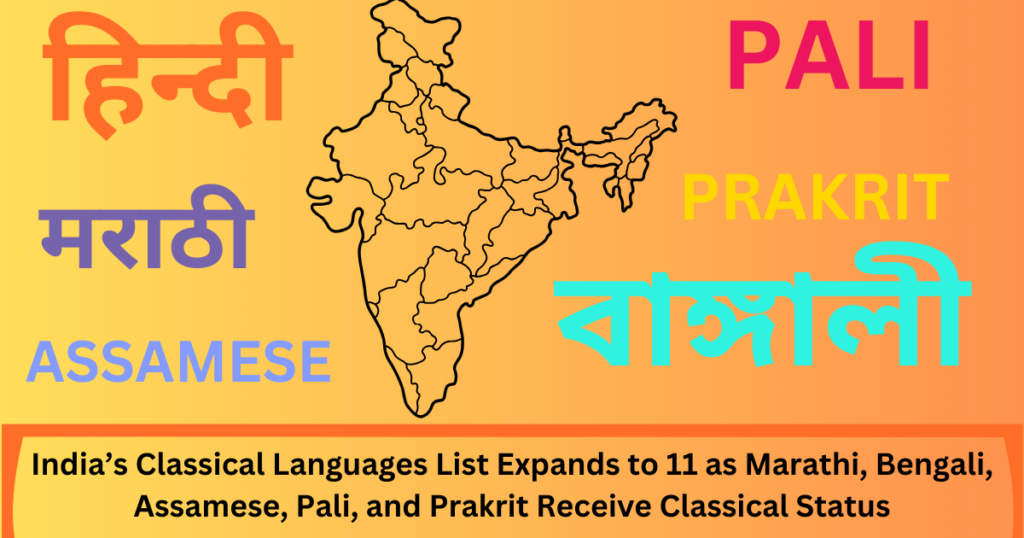
In a historic decision, the Union Cabinet, led by Prime Minister Narendra Modi, has granted classical language status to five more Indian languages: Marathi, Bengali, Assamese, Pali, and Prakrit. This significant move raises the number of classical Indian languages to 11, with Tamil, Sanskrit, Telugu, Kannada, Malayalam, and Odia already part of this prestigious group.
The decision, announced on October 3, 2024, was lauded by various state leaders and linguists as a vital step in preserving India’s linguistic diversity. Union Information and Broadcasting Minister Ashwini Vaishnaw highlighted the importance of this recognition during a press briefing, stating that the government’s move is in line with the NDA’s commitment to celebrating India’s rich cultural heritage.
Prime Minister Narendra Modi also expressed his thoughts on X (formerly Twitter), emphasizing the importance of India’s diverse linguistic traditions. He stated, “Our Government cherishes and celebrates India’s rich history and culture. We have also been unwavering in our commitment to popularising regional languages. I am extremely glad the Cabinet has decided that Assamese, Bengali, Marathi, Pali and Prakrit will be conferred the status of Classical Languages! Each of them are beautiful languages, highlighting our vibrant diversity. Congratulations to everyone.”
The inclusion of these languages in the classical category not only strengthens the nation’s cultural foundation but also creates new avenues for academic and research opportunities. The preservation, digitization, and documentation of ancient texts in these languages are expected to generate employment in sectors like archiving, translation, publishing, and digital media.
Several state leaders expressed their gratitude for the recognition of their native languages. Maharashtra Deputy Chief Minister Devendra Fadnavis called the decision a “day to be written in golden letters,” as it fulfilled the state’s longstanding demand for classical language status for Marathi. Similarly, Assam Chief Minister Himanta Biswa Sarma hailed the move, calling it a historic decision for Assam, which would help preserve the region’s ancient wisdom.
In West Bengal, Chief Minister Mamata Banerjee celebrated the acknowledgment of Bengali as a classical language, especially amid the festive season of Durga Puja. She highlighted the state’s efforts over the years to secure this recognition through research and advocacy.
This decision underscores the government’s larger initiative to uplift regional languages and ensure their place in India’s cultural and educational landscape. As these languages join the elite group, India takes another step toward honoring its diverse linguistic heritage.
Stay tuned to ibizznews.com for further updates.




